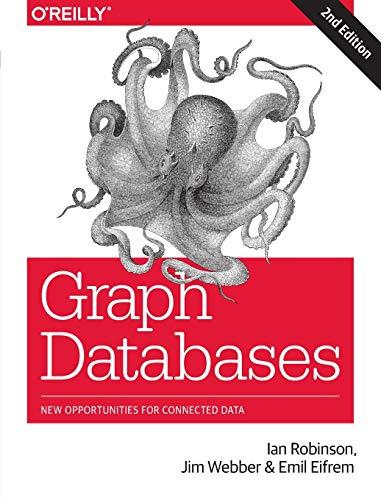Question
Note: Creating multiple Scanner objects for the same input stream yields unexpected behavior. Thus, good practice is to use a single Scanner object for reading
Note: Creating multiple Scanner objects for the same input stream yields unexpected behavior. Thus, good practice is to use a single Scanner object for reading input from System.in. That Scanner object can be passed as an argument to any methods that read input.
This program extends the earlier "Online shopping cart" program. (Consider first saving your earlier program).
(1) Extend the ItemToPurchase class per the following specifications:
- Private fields
- string itemDescription - Initialized in default constructor to "none"
- Parameterized constructor to assign item name, item description, item price, and item quantity (default values of 0). (1 pt)
- Public member methods
- setDescription() mutator & getDescription() accessor (2 pts)
- printItemCost() - Outputs the item name followed by the quantity, price, and subtotal
- printItemDescription() - Outputs the item name and description
Ex. of printItemCost() output:
Bottled Water 10 @ $1 = $10
Ex. of printItemDescription() output:
Bottled Water: Deer Park, 12 oz.
(2) Create two new files:
- ShoppingCart.java - Class definition
- ShoppingCartManager.java - Contains main() method
Build the ShoppingCart class with the following specifications. Note: Some can be method stubs (empty methods) initially, to be completed in later steps.
-
Private fields
- String customerName - Initialized in default constructor to "none"
- String currentDate - Initialized in default constructor to "January 1, 2016"
- ArrayList cartItems
-
Default constructor
-
Parameterized constructor which takes the customer name and date as parameters (1 pt)
-
Public member methods
- getCustomerName() accessor (1 pt)
- getDate() accessor (1 pt)
- addItem()
- Adds an item to cartItems array. Has parameter ItemToPurchase. Does not return anything.
- removeItem()
- Removes item from cartItems array. Has a string (an item's name) parameter. Does not return anything.
- If item name cannot be found, output this message: Item not found in cart. Nothing removed.
- modifyItem()
- Modifies an item's description, price, and/or quantity. Has parameter ItemToPurchase. Does not return anything.
- If item can be found (by name) in cart, check if parameter has default values for description, price, and quantity. If not, modify item in cart.
- If item cannot be found (by name) in cart, output this message: Item not found in cart. Nothing modified.
- getNumItemsInCart() (2 pts)
- Returns quantity of all items in cart. Has no parameters.
- getCostOfCart() (2 pts)
- Determines and returns the total cost of items in cart. Has no parameters.
- printTotal()
- Outputs total of objects in cart.
- If cart is empty, output this message: SHOPPING CART IS EMPTY
- printDescriptions()
- Outputs each item's description.
Ex. of printTotal() output:
John Doe's Shopping Cart - February 1, 2016 Number of Items: 8 Nike Romaleos 2 @ $189 = $378 Chocolate Chips 5 @ $3 = $15 Powerbeats 2 Headphones 1 @ $128 = $128 Total: $521
Ex. of printDescriptions() output:
John Doe's Shopping Cart - February 1, 2016 Item Descriptions Nike Romaleos: Volt color, Weightlifting shoes Chocolate Chips: Semi-sweet Powerbeats 2 Headphones: Bluetooth headphones
(3) In main(), prompt the user for a customer's name and today's date. Output the name and date. Create an object of type ShoppingCart. (1 pt) Ex.
Enter Customer's Name: John Doe Enter Today's Date: February 1, 2016 Customer Name: John Doe Today's Date: February 1, 2016
(4) Implement the printMenu() method. printMenu() has a ShoppingCart parameter, and outputs a menu of options to manipulate the shopping cart. Each option is represented by a single character. Build and output the menu within the method.
If the an invalid character is entered, continue to prompt for a valid choice. Hint: Implement Quit before implementing other options. Call printMenu() in the main() method. Continue to execute the menu until the user enters q to Quit. (3 pts) Ex:
MENU a - Add item to cart d - Remove item from cart c - Change item quantity i - Output items' descriptions o - Output shopping cart q - Quit Choose an option:
(5) Implement Output shopping cart menu option. (3 pts) Ex:
OUTPUT SHOPPING CART John Doe's Shopping Cart - February 1, 2016 Number of Items: 8 Nike Romaleos 2 @ $189 = $378 Chocolate Chips 5 @ $3 = $15 Powerbeats 2 Headphones 1 @ $128 = $128 Total: $521
(6) Implement Output item's description menu option. (2 pts) Ex.
OUTPUT ITEMS' DESCRIPTIONS John Doe's Shopping Cart - February 1, 2016 Item Descriptions Nike Romaleos: Volt color, Weightlifting shoes Chocolate Chips: Semi-sweet Powerbeats 2 Headphones: Bluetooth headphones
(7) Implement Add item to cart menu option. (3 pts) Ex:
ADD ITEM TO CART Enter the item name: Nike Romaleos Enter the item description: Volt color, Weightlifting shoes Enter the item price: 189 Enter the item quantity: 2
(8) Implement Remove item menu option. (4 pts) Ex:
REMOVE ITEM FROM CART Enter name of item to remove: Chocolate Chips
(9) Implement Change item quantity menu option. Hint: Make new ItemToPurchase object and use ItemToPurchase modifiers before using modifyItem() method. (5 pts) Ex:
CHANGE ITEM QUANTITY Enter the item name: Nike Romaleos Enter the new quantity: 3
ItemToPurchase.java
*/Type code here*/
ShoppingCartManager.java
*/Type code here*/
ShoppingCart.java
*/Type code here*/
Step by Step Solution
There are 3 Steps involved in it
Step: 1

Get Instant Access to Expert-Tailored Solutions
See step-by-step solutions with expert insights and AI powered tools for academic success
Step: 2

Step: 3

Ace Your Homework with AI
Get the answers you need in no time with our AI-driven, step-by-step assistance
Get Started


